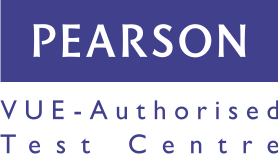- Uczestniczyli w kursie dla właścicieli witryn SharePoint lub mają solidne doświadczenie jako właściciele witryn / administratorzy kolekcji witryn w SharePoint.
- Znają wymagania biznesowe dotyczące treści, rekordów i zarządzania.
Ten dwudniowy kurs prowadzony przez instruktora jest przeznaczony dla właścicieli witryn SharePoint oraz właścicieli treści. W tym kursie studenci uczą się, jak konfigurować i korzystać z funkcji zarządzania treścią biblioteki SharePoint.
Ten moduł dostarcza przeglądu funkcji zarządzania treścią w SharePoint oraz omówienia bezpieczeństwa w SharePoint.
Ten moduł wyjaśnia, jak tworzyć i konfigurować biblioteki SharePoint. Tutaj omówimy i rozszerzymy tematy omawiane w typowym szkoleniu dla właścicieli witryn.
W tym module zbada się pojęcia metadanych i formalnej taksonomii. Przeglądane będą usługi zarządzania metadanymi na poziomie farmy i poziomu witryny.
Ten moduł wyjaśnia, jak formalizować, standaryzować i automatyzować zbieranie metadanych za pomocą kolumn witryny i typów treści.
Ten moduł bada funkcje zasad zarządzania informacjami, w tym audytowanie działalności i zasady retencji dokumentów.
Ten moduł wyjaśnia, jak organizować i zarządzać dużymi bibliotekami
Ten moduł wyjaśnia, jak korzystać z narzędzi automatyzacji SharePoint do zarządzania dokumentami. Obejmuje to alerty, zasady retencji i przepływy pracy. Ten moduł zapewni przegląd tworzenia przepływów pracy za pomocą programu SharePoint Designer.
Ten moduł bada rekordy i funkcje zarządzania rekordami SharePointa. Obejmuje zarówno Centrum Rekordów, jak i Zarządzanie Rekordami na miejscu.
Ten moduł wyjaśnia, jak skonfigurować lepsze doświadczenie wyszukiwania dla użytkowników biblioteki, modyfikując schemat wyszukiwania w celu wykorzystania metadanych. (Dla pełnej obsługi administracji wyszukiwaniem zobacz kurs: "55122AC Microsoft SharePoint 2013 Administracja wyszukiwaniem".)
Firma jest Autoryzowanym Ośrodkiem Szkoleniowym MICROSOFT Silver Learning
Możesz u nas podejść do egzaminu Pearson VUE
Spółka posiada wpis do ewidencji placówek niepublicznych Nr ew. ES.VIII.4320-6/p.n./2003 wydany z upoważnienia Prezydenta Miasta Łodzi
 |
 |
Zachęcamy do skorzystania z możliwości dofinansowania szkoleń oferowanych przez naszą firmę. Dostępne rozwiązania:
Skontaktuj się z nami, aby uzyskać więcej informacji. Oferujemy pełne wsparcie w tym procesie.
Zapraszamy!
|
|
|
Najbliższy termin: Prosimy o kontakt
Najbliższy termin: Prosimy o kontakt
Najbliższy termin: Prosimy o kontakt
Najbliższy termin: Prosimy o kontakt
Najbliższy termin: Prosimy o kontakt
Najbliższy termin: Prosimy o kontakt
Najbliższy termin: Prosimy o kontakt
Najbliższy termin: Prosimy o kontakt
Najbliższy termin: Prosimy o kontakt
Najbliższy termin: Prosimy o kontakt
Najbliższy termin: 15-12-2025 09:00
Najbliższy termin: Prosimy o kontakt
